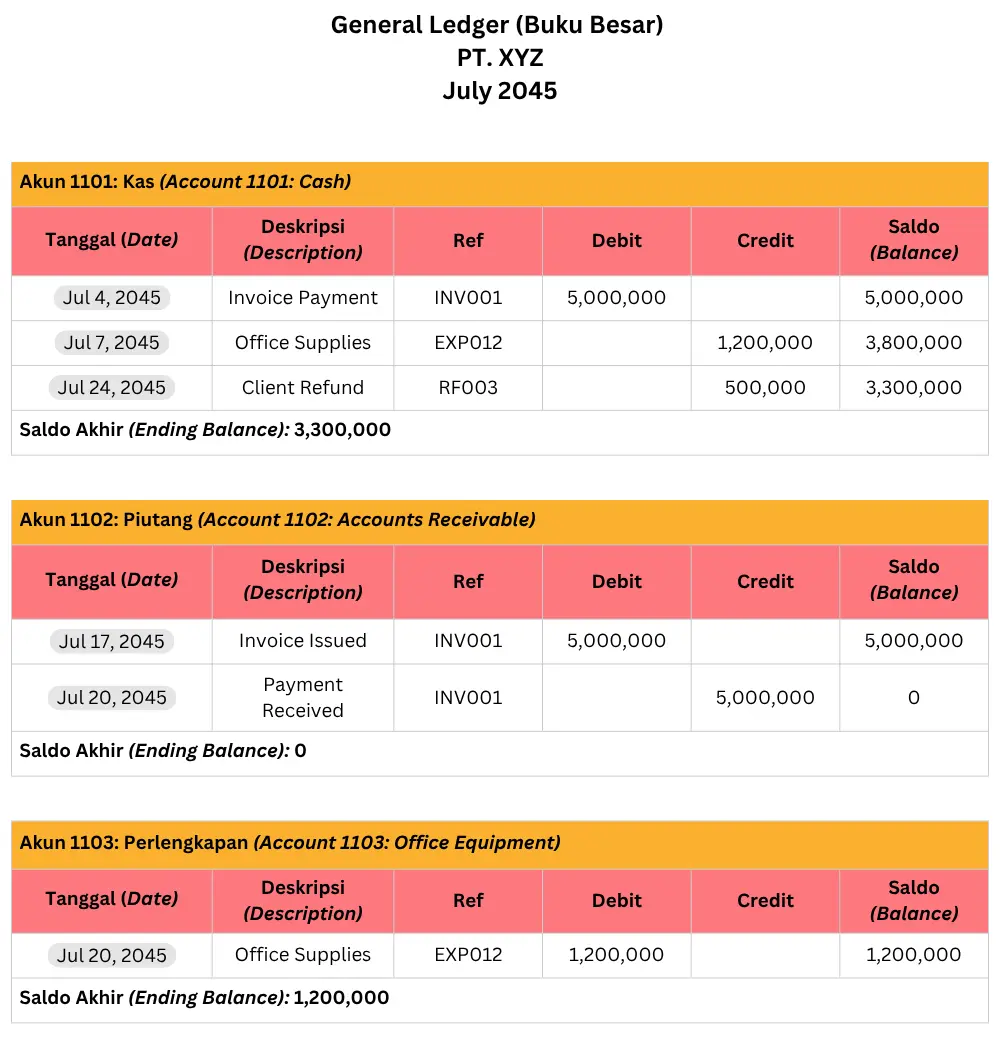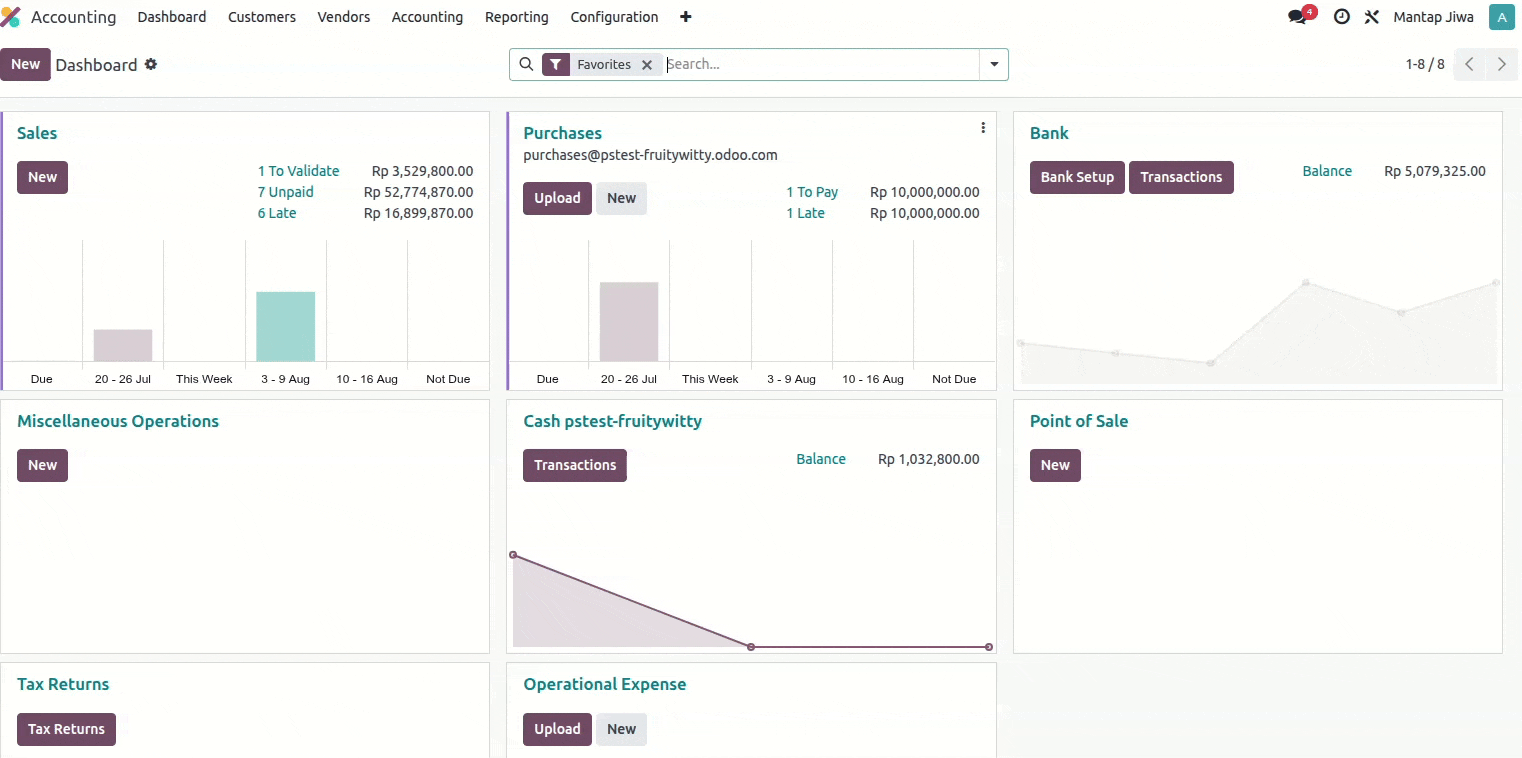If there’s one common goal across businesses around the world, it’s this: profit. Like it or not, running a business is about managing money; how much goes in, how much goes out, and ultimately, how much you make.
To truly understand business performance, you need clear, structured financial records. Every transaction needs to be captured, categorized, and organized. This is where the general ledger comes in.
So, what exactly is a general ledger? How do you create one without crunching numbers manually? Let’s break it down 👇
Also Read: Balance Sheet 101 (Components, Examples, and How to Create)What is a General Ledger?

Example of general ledger
A general ledger is the main accounting record used to categorize business transactions by account type such as cash, receivables, payables, revenue, or expenses.
It’s essential for compiling financial reports and analyzing company performance.
In short:
General Ledger = Transaction summary by account
General Journal vs General Ledger
Think of the general journal as the starting point—a chronological record of every transaction. Each entry includes the date, accounts involved, debit/credit values, and a description.
Meanwhile, the general ledger is a summary of those journal entries, grouped by account.
Aspect | General Journal | General Ledger |
Sequence | Recorded first | Recorded after journal entries |
Format | Chronological | Categorized by account type |
Function | Logs every transaction | Organizes and analyzes account |
Content | Daily transaction details | Account-by-account summaries |
Why General Ledger Matters
- Organizes transactions neatly by account
- Simplifies the creation of financial reports like balance sheets and P&L
- Forms the basis for trial balances
- Helps detect entry errors and discrepancies
- Makes it easy to trace transaction history
What’s Inside a General Ledger
Each ledger entry typically includes:
- Date: When the transaction happened
- Description: What the transaction was
- Reference: Journal or document number
- Debit/Credit: Amount posted
- Balance: Running total per account
Automate Your Ledger with Odoo Accounting
Creating financial reports can be a multi-step process:
General Journal → General Ledger → Trial Balance → Financial Statements
Now imagine doing this manually for hundreds of daily transactions. Errors, duplicated entries, and a lot of wasted time are almost guaranteed.
With Odoo, you can leave the manual work behind.
Odoo is an all-in-one ERP system with apps for Accounting, POS, Inventory, Manufacturing, HR, and more. Its Accounting app automates the entire bookkeeping process (including general ledgers) with accuracy, efficiency, and real-time data.

Odoo Accounting lets you:
- ✅ Auto-post transactions to the correct ledger accounts
- ✅ See real-time account balances anytime
- ✅ Post journal entries just once from invoices, payments, or purchases
- ✅ Track and audit every change transparently
- ✅ Enjoy fully integrated business apps: Sales, Inventory, Projects, and more
📌 How It Works with Odoo

Automated Flow
When an invoice is issued, the system automatically posts a journal entry and updates the receivables and revenue ledger accounts.

Double Entry Who?
When a payment comes in, cash and receivable accounts are updated. No double entry required.
Recording to the general ledger is essential, but switching between files or copying data from one system to another? That’s where things get messy.
In Odoo, everything is connected.
Sales, purchases, payments—they all flow seamlessly into your journal and general ledger. So, your books stay clean and your process stays efficient.
Want simpler, smarter bookkeeping?
Try Odoo and see how integrated accounting can transform your business.

